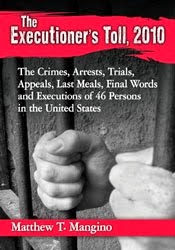Right from the start, there were signs something was wrong
with the “Broken Window Theory” credited for much of the dramatic violent crime
decline in New York City, reported
NPR.
Criminologists George L. Kelling and James Q. Wilson
wrote an article forThe Atlantic where they introduced their crime fighting strategy known as the Broken Window Theory adopted by NYC Major Rudy Guiliani in 1993.
"Crime was starting to go down in New York prior to the
Giuliani election and prior to the implementation of broken windows
policing," says Bernard Harcourt a Columbia University law professor.
"And of course what we witnessed from that period, basically from about
1991, was that the crime in the country starts going down, and it's a remarkable
drop in violent crime in this country. Now, what's so remarkable about it is
how widespread it was."
Harcourt points out that crime dropped not only in New York,
but in many other cities where nothing like broken windows policing was in
place. In fact, crime even fell in parts of the country where police
departments were mired in corruption scandals and largely viewed as
dysfunctional, such as Los Angeles.
"Los Angeles is really interesting because Los Angeles
was wracked with terrible policing problems during the whole time, and crime
drops as much in Los Angeles as it does in New York," says Harcourt.
There were lots of theories to explain the nationwide
decline in crime. Some said it was the growing economy or the end of the crack
cocaine epidemic. Some criminologists credited harsher sentencing guidelines.
In 2006, Harcourt found the evidence supporting the broken
windows theory might be flawed. He reviewed the study Kelling had conducted in
2001, and found the areas that saw the largest number of misdemeanor arrests
also had the biggest drops in violent crime.
Harcourt says the earlier study failed to consider what's
called a "reversion to the mean."
"It's something that a lot of investment bankers and
investors know about because it's well-known and in the stock market,"
says Harcourt. "Basically, the idea is if something goes up a lot, it
tends to go down a lot."
A graph in Kelling's 2001 paper is revealing. It shows the
crime rate falling dramatically in the early 1990s. But this small view gives
us a selective picture. Right before this decline came a spike in crime. And if
you go further back, you see a series of spikes and declines. And each time,
the bigger a spike, the bigger the decline that follows, as crime reverts to
the mean.
Kelling acknowledges that broken windows may not have had a
dramatic effect on crime. But he thinks it still has value.
"Even if broken windows did not have a substantial
impact on crime, order is an end in itself in a cosmopolitan, diverse
world," he says. "Strangers have to feel comfortable moving through
communities for those communities to thrive. Order is an end in itself, and it
doesn't need the justification of serious crime."
Order might be an end in itself, but it's worth noting that
this was not the premise on which the broken windows theory was sold. It was
advertised as an innovative way to control violent crime, not just a way to get
panhandlers and prostitutes off the streets.
Harcourt says there was another big problem with broken
windows.
"We immediately saw a sharp increase in complaints of
police misconduct. Starting in 1993, what you're going to see is a tremendous
amount of disorder that erupts as a result of broken windows policing, with
complaints skyrocketing, with settlements of police misconduct cases skyrocketing,
and of course with incidents, brutal incidents, all of a sudden happening at a
faster and faster clip."
The problem intensified with a new practice that grew out of
broken windows. It was called "stop and frisk," and was embraced in
New York City after Mayor Michael Bloomberg won election in 2001.
If broken windows meant arresting people for misdemeanors in
hopes of preventing more serious crimes, "stop and frisk" said, why
even wait for the misdemeanor? Why not go ahead and stop, question and search anyone
who looked suspicious?
There were high-profile cases where misdemeanor arrests or
stopping and questioning did lead to information that helped solve much more
serious crimes, even homicides. But there were many more cases where police
stops turned up nothing. In 2008, police made nearly 250,000 stops in New York
for what they called furtive movements. Only one-fifteenth of 1 percent of
those turned up a gun.
For George Kelling, this was not the end that he had hoped
for. As a researcher, he's one of the few whose ideas have left the academy and
spread like wildfire.
But once politicians and the media fell in love with his
idea, they took it to places that he never intended and could not control.
"When, during the 1990s, I would occasionally read in a
newspaper something like a new chief comes in and says, 'I'm going to implement
broken windows tomorrow,' I would listen to that with dismay because [it's] a
highly discretionary activity by police that needs extensive training, formal guidelines,
constant monitoring and oversight. So do I worry about the implementation about
broken windows? A whole lot ... because it can be done very badly."
In fact, Kelling says, it might be time to move away from
the idea.
"It's to the point now where I wonder if we should back
away from the metaphor of broken windows. We didn't know how powerful it was
going to be. It simplified, it was easy to communicate, a lot of people got it
as a result of the metaphor. It was attractive for a long time. But as you
know, metaphors can wear out and become stale."
These days, the consensus among social scientists is that
broken windows likely did have modest effects on crime. But few believe it
caused the 60 or 70 percent decline in violent crime for which it was once
credited.
And yet despite all the evidence, the idea continues to be
popular.







